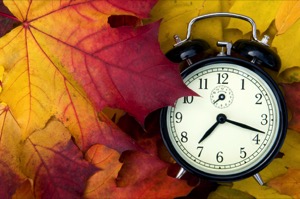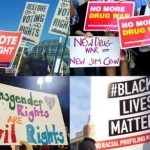
After I came out in 2003, most of my holiday seasons have been filled with holiday depression. You know, that kind of seasonal depression one experiences that has known cause or causes and comes and goes at roughly the same times each year in fall and winter.
Annual events and anniversaries with gray and black undertones have punctuated my annual depressions. This year these dates have often been blunted by events that took the sting out of those events and anniversaries.
The start date of my annual holiday depression has roughly coincided with the Transgender Day of Remembrance Nov. 20. It’s that day each year when we in the trans community mark the deaths of our past year’s victims of antitransgender violence; it’s a day we mark by reading the names of those known dead by that violence aloud. This year, a friend of mine called me in distress right as the memorial service was to begin here in San Diego, and so in caring for this friend the pain of hearing the names read aloud with the stories of their deaths was blunted by being able to feel useful.
The following key date of my annual depression is Thanksgiving. My own relationships with my family of origin have deteriorated over the years – directly related to me being transgender – and I feel the loss of my family that day each year. This year I spent the day with friends, and it was a warmer Thanksgiving than I’d felt in years.
The day after Thanksgiving is that shopping day known as Black Friday. For me, the moniker for that day has a different connotation than the traditional one: I had a friend commit suicide on that day in 2009. Perhaps it’s because I expected this year to be especially bad because it was the 5th anniversary of my friend’s death, but for some inexplicable reason it wasn’t. And, it wasn’t that I didn’t experience sadness on that day, but it was sadness for her loss and not overwhelming feelings of mixed sorrow and hopelessness that punctuate my experiences of depression.
Dec. 9 is the next difficult day in my holiday season. I had a relationship with a woman I deeply loved end inexplicitly on that date in 2012. To be told by a person who days earlier expressed love and affection to me tell me that our relationship was no longer working for her would have been difficult enough, but when I asked why the answer from her was, “I don’t think it’d be helpful to discuss.” So, Dec. 9 has for the past two years been a day full of confusion and pain, but this year I hardly felt the day passing. Intellectually I still remember the pain, but emotionally I no longer feel what the love felt like. It’s as if I’d finally come to the year where my tears over that loss of that lover had already been cried, so there was no more well of pain from which to draw more tears.
Lastly comes Christmas. For me, it is the hardest day of all – I miss sharing love with my family of origin most on that day each year.
This year, my seasonal depression hit hard Dec. 26 – the day that usually marks the beginning of my upswing each year. What happened this year is that I consciously connected with trans women who’ve started their transitions in the last year or two, and with whom I have worked to be supportive. What happened this year was that I read multiple stories of trans women who spent their Christmases with their families and were repeatedly misgendered and “deadnamed” by parents and siblings, and were told how being transgender was an “issue” or a “problem.” Their gender identities were implicitly and explicitly denied as truth.
And hearing those stories reopened so many of my own emotional scars and wounds. I felt the pain of my community sisters as if it were my own – the loss of feeling love from family replaced with feeling of their judgment.
Feeling the seasonal loss of love from friends and family apparently isn’t always neatly channeled and neatly packaged between set dates. I’ve learned now seasonal depression can be a bit more fluid than that.















